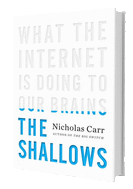
The obvious answer is that Christ calls us to “Always be prepared to give an answer to everyone who asks you to give the reason for the hope that you have.” The spreading of the Good News, as is assigned to us in the Great Commission and elsewhere in scripture, is only accomplished (or rather, best accomplished) through personal testimony with those who are unfamiliar with the story, or who have been unwilling to listen to the story. The other answer, though, is that through testimony we are able to concretize our faith within our minds. Let me explain.
I’ve been reading many books recently that include discussions about new discoveries in neuroscience that show the brain as being malleable or changeable. The traditional understanding of the brain, however, is that it is somewhat static in nature; once something is learned, it is permanent. Neuroplasticity is a term that scientists are using to explain that, in actuality, new connections can be made in the brain all the time, even in old age. In “The Shallows: What the Internet is doing to our Brains”, author Nicholas Carr argues that the shift from reading print in books, magazines, and otherwise to reading text via web pages is actually changing our brains. He talks at length about the neuroplasticity of the brain, most of which is over my head (literally) and how when one engages in and practices physical acts, the way the brain is wired actually changes. This is true of athletic manoeuvres, keyboarding, dancing, reading, and speaking. It is through repetition that new ‘neural pathways’ in the brain are formed.
I believe that this is true also of our faith; the more we think it through and articulate it, the more concrete and real it becomes to us.
When I first started teaching, I heard a principal say that the first thing that she looked at in a prospective new teacher was how able and willing he or she was to speak about what God was doing in his or her life. The exciting thing to me about Christian education is that both of the aforementioned are possible; teachers are able to speak openly about their walk with God, and students are able to practice and form faithful responses to the Word of God. Spiritual disciplines have the ability to form the heart, and perhaps as neuroplasticity suggests, it is possible through practice and repetition to train ourselves to become more able to live Christ-like lives.

 RSS Feed
RSS Feed
